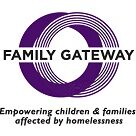Aug 8, 2023- Dallas Morning News- by Jason Beeferman
Dallas wants $3.6 million next year to address homeless encampments, which includes razing,
cleaning, and fencing key areas, according to City Manager T.C. Broadnax’s budget proposal that
City Council will tackle this month.
The city plans to spend $1.5 million on decommissioning homelessness encampments, and
another $1million on building fences to keep homeless individuals out of encampment-prone
areas, like highway overpasses and bridges. It will also budget $1.1 million for the “cleaning” of
encampments.
The numbers are only preliminary and must be approved by City Council this September, but the
millions of dollars toward cleaning, clearing and preventing homelessness encampments represent
the city’s increased investment toward homelessness prevention in recent years.
“The message this budget sends is this is a priority for the City of Dallas,” said Peter Brodsky, the
board chair of Housing Forward, one of the area’s largest homelessness nonprofits. “We are going
to continue to address the unsheltered homelessness in our community and ensure our city doesn’t
allow the problem to become out of control as it has in other cities.”
The city’s planned $3.6 million investment in managing encampments is just a small part of the
money allocated to end and prevent homelessness in Dallas. In October 2021, the city, along with
federal, county and nonprofit partners, launched the $72 million R.E.A.L. Time Rehousing
initiative. The initiative aims to house 6,000 individuals and families by 2025.
Amid the R.E.A.L. time effort, the mayor has made clearing encampments a priority of his
administration. In February, Mayor Eric Johnson launched the HOPE task force, named for its
work around homelessness, organizations, policies and encampments.
In June the group issued 12 key recommendations to the city for dealing with its unsheltered
homeless population, one of which was to “consistently allocate City resources, including police,
sanitation, and code-related services, to encampment closures and prevent their reestablishment.”
Brodsky and Ellen Magnis, CEO of homelessness nonprofit Family Gateway, were co-chairs of the
task force. The two said there is an important distinction between simply closing and
“decommissioning” a homelessness encampment..
“It’s very different than just shutting it down and telling people to move along,” Magnis said.
“Decommissioning means you’re going in with a workforce of trained professionals. You’re
building relationships with those people who are living outside and you’re trying to determine
what their needs are and what kind of housing is best for them.”
“It’s a slow process to really understand what the need is,” she said.
Brodsky, who applauded the city’s $1.5 million decommissioning investment, said the bulk of the
money will likely be used to pay outreach workers. Brodsky and Magnis said the workers develop
relationships over weeks with the individuals experiencing homelessness in the encampments and
help them secure housing before a site is cleared.
Over the last seven years, homelessness as a whole has risen sharply in Dallas and surrounding
areas. In Dallas and Collin counties, the homeless population was 3,141 in 2015. In 2023, that
number was 4,244, a 35% increase.
This is according to data from homelessness point-in-time counts, a federally mandated count of
homeless individuals that occurs during one January night every year around the country.
The unsheltered population – those who reside in areas not fit for human habitation, like
encampments – has also ballooned in recent years. Since 2014, the population has jumped from
242 to over 1,300, an increase of 437%, according to the HOPE task force’s report.
However, there have been some short-term improvements in the city’s unsheltered population,
which declined 14% in the 2023 PIT count.
Along with the combined $2.5 million for decommissioning and then fencing encampment areas,
the city plans to spend $1.1 million on cleaning encampments.
“It doesn’t do any good for us to close an encampment if the city then doesn’t have any budget to
clean it out, put up a fence to make sure no one comes back and then have police officers to patrol
it,” Brodsky said.
According to the city, the cleaning process involves removing “hazardous” materials from the site
as well as power washing away human waste. Cleanings are scheduled on an “as needed” basis and
are usually dependent on service requests received via 311 calls, the city said.
As for decommissioning, the city said it considers a number of factors before it decides to clear an
encampment. These factors include the site’s “location, material and physical hazards, violence,
size, and so on.”
“Decommissioning is an encampment closure that closes the site through a 4- to 8-week process
wherein area unsheltered residents are engaged in the housing process by the R.E.A.L. Time Rapid
Rehousing (RTRR) Initiative,” said Catherine Cuellar, the city’s communications director. “The
result is a sustainably closed site, with all individuals housed, breaking the cycle of homelessness.”
For the 2022-2023 fiscal year, the city budgeted $200,000 for encampment fencing and $900,346
for encampment cleaning. The city estimates it will surpass both those numbers by the end of the
year, spending $966,000 on fencing and $1,134,346 on cleaning.
The planned budget for the upcoming fiscal year mirrors spending projections for the current
fiscal year. For fiscal year 2023-2024, the city plans to devote those same dollar amounts –
$966,000 and $1,134,346 – toward cleaning and fencing.
These efforts to manage the city’s homelessness encampments are only a symptom of Dallas’
greater problem of a strained housing supply with little affordable options.
“We’re short something like 33,000 units of housing for people who make 50% of the area median
income or less,” Magnis said, referring to a 2023 Child Poverty Action Lab report.
“If we don’t we start making a dent in that, we’re just gonna have more and more people coming
into homelessness… We’re just going to keep having more encampments.”
Read full story here.
